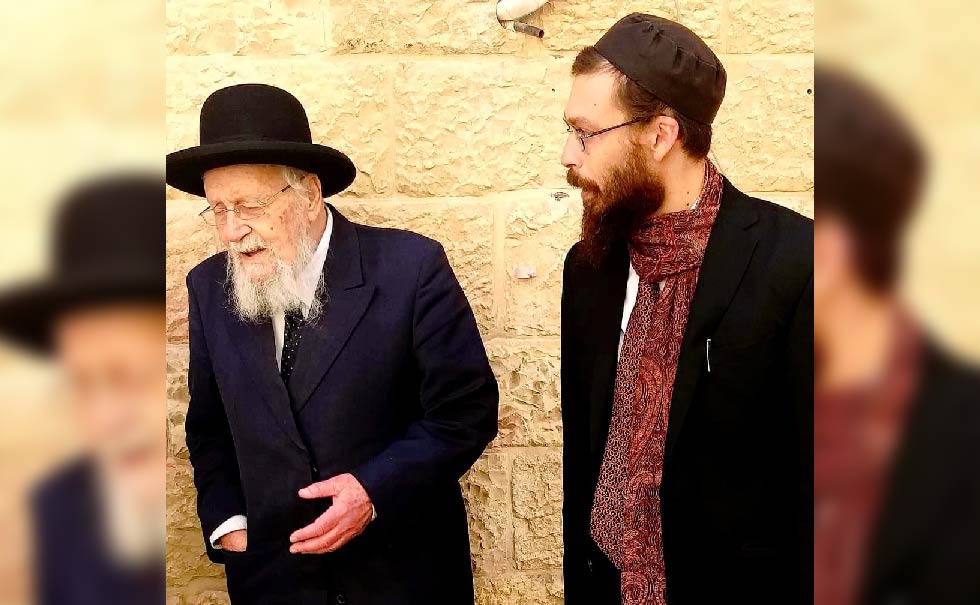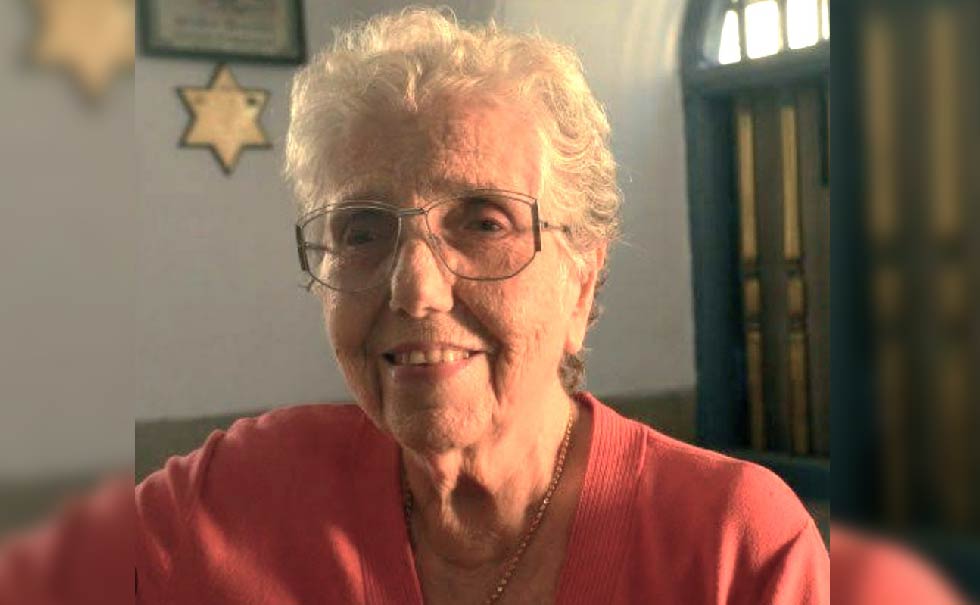Parshat Vayishlach
Yaakov and Eisav represent entirely different worldviews – not only individual persons within the Torah (Bereshit/Genisis 33:12):
וַיֹּ֖אמֶר נִסְעָ֣ה וְנֵלֵ֑כָה וְאֵלְכָ֖ה לְנֶגְדֶּֽךָ׃
And [Eisav] said, “Let us start on our journey, and I will proceed at your pace.”
וַיֹּ֣אמֶר אֵלָ֗יו אֲדֹנִ֤י יֹדֵ֙עַ֙ כִּֽי־הַיְלָדִ֣ים רַכִּ֔ים וְהַצֹּ֥אן וְהַבָּקָ֖ר עָל֣וֹת עָלָ֑י וּדְפָקוּם֙ י֣וֹם אֶחָ֔ד וָמֵ֖תוּ כׇּל־הַצֹּֽאן׃
But he [Yaakov] said to him, “My lord knows that the children are frail and that the flocks and herds, which are nursing, are a care to me; if they are driven hard a single day, all the flocks will die.
יַעֲבׇר־נָ֥א אֲדֹנִ֖י לִפְנֵ֣י עַבְדּ֑וֹ וַאֲנִ֞י אֶֽתְנָהֲלָ֣ה לְאִטִּ֗י לְרֶ֨גֶל הַמְּלָאכָ֤ה אֲשֶׁר־לְפָנַי֙ וּלְרֶ֣גֶל הַיְלָדִ֔ים עַ֛ד אֲשֶׁר־אָבֹ֥א אֶל־אֲדֹנִ֖י שֵׂעִֽירָה׃
Let my lord go on ahead of his servant, while I travel slowly, at the pace of the cattle before me and at the pace of the children, until I come to my lord in Seir.”
וַיֹּ֣אמֶר עֵשָׂ֔ו אַצִּֽיגָה־נָּ֣א עִמְּךָ֔ מִן־הָעָ֖ם אֲשֶׁ֣ר אִתִּ֑י וַיֹּ֙אמֶר֙ לָ֣מָּה זֶּ֔ה אֶמְצָא־חֵ֖ן בְּעֵינֵ֥י אֲדֹנִֽי׃
Then Eisav said, “Let me assign to you some of the people who are with me.” But he [Yaakov] said, “Oh no, my lord is too kind to me!”
וַיָּ֩שׇׁב֩ בַּיּ֨וֹם הַה֥וּא עֵשָׂ֛ו לְדַרְכּ֖וֹ שֵׂעִֽירָה׃
So Eisav started back that day, on his way to Seir.
וְיַעֲקֹב֙ נָסַ֣ע סֻכֹּ֔תָה וַיִּ֥בֶן ל֖וֹ בָּ֑יִת וּלְמִקְנֵ֙הוּ֙ עָשָׂ֣ה סֻכֹּ֔ת עַל־כֵּ֛ן קָרָ֥א שֵׁם־הַמָּק֖וֹם סֻכּֽוֹת׃ {ס}
But Yaakov journeyed on to Succoth, and built a house for himself and made stalls for his cattle; that is why the place was called Succoth.”
Yaakov “a wholesome man dwelling in tents” a spiritual being and Eisav “a man who knows trapping” an practical person (Bereshit/Genesis: 25:27) – Eisav who’s name is related to the root of action ( עָשָׂ֣ה is the root of the name עֵשָׂ֛ו) “He did it” – the driving successful ego; I did it all: I achieved it, it was me, the self-made man, the capable warrior and hunter: the talented person.
Yaakov is the “heel” the one who arrives grasping onto the heel of his highly successful brother, following at the rear, yet Yaakov is a spiritual being – through him is established the covenant of Abraham: not through material success alone, but rather through his powerful level of spirituality:
Spiritual life begins with a profound understanding of humility: understanding that we lack self-perfection, that have erred, made mistakes and missed opportunities – we begin instead to give thanks and glory to Hashem for being perfect (rather than ourselves), for sustaining us, giving us our lives and the loved ones we cherish, from saving us and granting us the gift of existence itself: contrast that with the idea of the “self-made success story”, an individual who sees himself as flawless; having achieved his own greatness against a volatile and unforgiving world, ultimately forgetting his Creator and ascribing all his success to his own mortal hands.
In our Parsha, Yaakov brings a tribute to Eisav and reveals that he has also achieved great material blessings along with his unwavering dedication to his spiritual reality; unaffected by the negative experience of living with the immoral Lavan, as well as being the individual who fought all night with the angel and prevailed despite being injured in the struggle:
In a deeper sense Yaakov represents Israel and Eisav the non-Jewish world, particularly that of Rome.
The Jerusalem Talmud (perhaps the oldest Rabbinical source on this subject) suggests that Itzhak’s statement in the Torah during the deception of Yaakov when he stole the blessing from Eisav (Bereshit/Genesis 27) alludes to the future pain that Eisav’s descendants will cause to Yaakov’s descendants (Jerusalem Talmud: Ta’anit 4:8, 68d):
תני אמר רבי יהודה בי רבי אלעאי ברוך רבי היה דורש הקול קול יעקב והידים ידי עשו קולו של יעקב צווח ממה שעשו לו ידיו של עשו בביתר
It was taught: Rabbi Yehudah bei Rabbi Ilai Baruch said: “Rebbi [Yehudah HaNasi] used to offer this (Drush) homily: ‘The voice is the voice of Jacob but the hands are the hands of Esau’ (Gen 27:22): The voice is the voice of Jacob crying out because of what the hands of Esau did to him at Beitar.”
(This refers to the catastrophic conflict between Rome and the people of Judea which took place in 132–135 C.E., popularly known as the Bar Kokhba rebellion, named after the Jewish leader of that time; Simeon Bar Kokhba).
Another Rabbinical source in the midrash, found in Genesis Rabbah, also connects Emperor Hadrian with Eisav (Midrash Rabbah. 63:7):
שני גוים בבטנך שני גאי גוים בבטנך זה מתגאה בעולמו [וזה מתגאה בעולמו, זה מתגאה במלכותו] וזה מתגאה במלכותו
“Two nations (goyim) are in your womb” – Two proud (goyim) nations are in your womb; this one is proud of his world [and that one is proud of his world; this one is proud of his kingdom] and that one is proud of his kingdom:
שני גיאי גוים בבטנך אדריינוס באומות ושלמה בישראל
Two prides of their nations are in your womb: Hadrian for the nations and Solomon for Israel.
Another Talmudic Midrash deals with Antoninus (probably a loose reference to Hadrian’s successor, Antoninus Pius, who was Roman emperor between 138 to 161CE) who worries that as a descendant of Eisav, he (himself) will not be saved on the day of judgement (Babylonian Talmud: Avodah Zarah 10b):
אמר ליה: אתינא לעלמא דאתי?
[Antoninus] said to [Rabbi Yehudah HaNasi]: “Will I enter the World-to-Come?”
אמר ליה: אין.
[Rabbi Yehudah HaNasi] said to him: “Yes.”
אמר ליה: והכתיב: לא יהיה שריד לבית עשו!
[Antoninus] said to him: But isn’t it written:
“And there shall not be any remaining of the house of Eisav” (Obadiah 1:18)?
בעושה מעשה עשו.
[Rabbi Yehudah HaNasi answered]: “[This (only) refers to] those who behave like Eisav…
In returning to our Parsha, we see Yaakov decide to remain behind and move at a slower pace (because of the flocks and the children – which can be easily understood as “responsibility), whilst Eisav representing the power of Rome and equated with dominance over the natural world, science, technology, political might and statecraft marches onwards – often without consciousness of the long term affect such decisions will have, in particular in the spiritual sense:
Which brings us swiftly to today: we stand at the end of time, Rome (the western paradigm) has brought us unbelievable advances in technology and the ability to harness our world for our comfort against the elements – medical breakthroughs occur literally every day, the internet and social media has connected us in a way that has never been possible in history, we have ventured beyond our planet and sent probes down towards the bottom of the oceans:
Yet something is profoundly missing, rates of depression abound, our ability to have stable relationships with ourselves and others is diminishing, within this exist new questions of who we are and how we identify, we find a profound level of atheism and apathy – the wonders of technology have not brought us to a level of transcendent happiness, quite the contrary: our world stands polluted and our systems intrinsically corrupted; the gap between the rich and poor has reached a level of disparity that is almost unthinkable. Marriage and the family unit, once the sacrosanct bedrock of society has become stressed and even considered “outdated”.
What is missing from our modern lives is the context as to why we wish to move forward in the first place, if it is not for the betterment of the lives of our fellow brothers and sisters whom we share the planet with, one is forced to admit that it is largely noise and the mere celebration of ego:
Yaakov may move slower than his big brother Eisav, however he arrives with his family, his responsibilities and with his birth right intact – as we move towards the uncertain future, perhaps we can understand the greatness of moving holding onto our Torah values, customs and our tradition of kindness and spiritual inspiration, we then can find the context the gifts that modern life has blessed us with and the tools to use such power responsibly.
Shabbat Shalom
Rabbi Jonathan Goldschmidt 2022 ©




